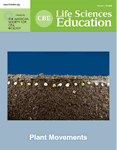Recent Research in Science Teaching and Learning
This feature is designed to point CBE—Life Sciences Education readers to current articles of interest in life sciences education as well as more general and noteworthy publications in education research. URLs are provided for the full text of open-access articles and for the abstracts of articles not freely available.
To draw attention to a range of knowledge about science education and highlight well-studied topics in science teaching and learning, Current Insights will alternate between featuring a variety of current literature and a number of articles on a particular theme. The theme of this issue is “doing science,” specifically, whether, how, and in what ways engaging in research influences the attitudes, knowledge, and interests of the researcher.
1. Bell, R. L., Blair, L. M., Crawford, B. A., and Lederman, N. G. (2003). Just do it? Impact of a science apprenticeship program on high school students' understandings of the nature of science. J. Res. Sci. Teach. 40, 487–509.
Not open access. Abstract: http://www3.interscience.wiley.com/journal/104526325/abstract.
Bell and colleagues challenge the idea that “doing science” leads to an understanding of the nature of science. Using the Views of Nature of Science instrument and complementary interviews, the authors examine changes in high school students' understanding of nature of science ideas before and after their participation in an 8-wk summer research program. Even though their research mentors “held strong convictions” that the students had learned about the scientific enterprise, only one student made substantial gains in her understanding of the nature of science and scientific inquiry. Her ability to reflect on her own knowledge and the epistemic demand of her particular research project may have been critical to her making these gains. See American Association for the Advancement of Science (1989) and National Research Council (1996) for definitions of nature of science ideas.
2. Hunter, A.-B., Laursen, S. L., and Seymour, E. (2007). Becoming a scientist: the role of undergraduate research in students' cognitive, personal, and professional development. Sci. Educ. 91, 36–74.
Open access: www.urca.msu.edu/cognitive.pdf.
Hunter and colleagues describe the results of an ethnographic study of undergraduate research programs at four liberal arts colleges with particular focus on comparing gains reported by students with mentors' reports of students' gains. The benefits reported included students' learning to “think and work like a scientist” and making related personal–professional gains such as increased confidence in doing scientific work and “being taken seriously.” High congruence between gains reported by students and faculty enhances the trustworthiness of these findings.
3. Lopatto, D. (2007). Undergraduate research experiences support science career decisions and active learning. CBE Life Sci. Educ. 6, 297–306.
Open access: www.lifescied.org/cgi/content/full/6/4/297.
Lopatto reports the results of a follow-up study of the impact of research experience on undergraduates using the Survey of Undergraduate Research Experiences, which was developed based on the work of Hunter and colleagues described above. The results demonstrate that both positive and negative outcomes reported by students after their participation in research persist over time (i.e., 9 mo later) and correlate with their choice to continue in science (i.e., students who report more positive outcomes persist in science, whereas students who report less positive outcomes are more likely to discontinue their plans for postgraduate science education). Lopatto also uses multiple linear regression analysis to explore the relationships among students' evaluations of different components of research programs and the program as a whole.
4. Morrison, J. A., Raab, F., and Ingram, D. (2008). Factors influencing elementary and secondary teachers' views on the nature of science. J. Res. Sci. Teach. Online first.
Not open access. Abstract: www3.interscience.wiley.com/journal/117861043/abstract?CRETRY = 1&SRETRY = 0.
Morrison and colleagues use the Views of Nature of Science instrument and complementary interviews to examine how teachers' understanding of the nature of science is enhanced by immersion in a science research context. The teachers' experience involves explicit instruction and discussion about the nature of science but no direct involvement in research activities. Notably, teachers with unclear or misinformed views of the nature of science improved their views through interactions with scientists that might not occur during a typical research experience. For example, teachers' ideas about the nature of science changed through job shadowing, interviewing scientists, and chatting informally with scientists rather than through involvement in research per se.
5. Roberts, L. F., and Wassersug, R. J. (2008). Does doing scientific research in high school correlate with students staying in science? A half-century retrospective study. Res. Sci. Educ. Online first.
Not open access. Abstract: www.springerlink.com/content/027130lp53h7q511/?p = 7793fc5693024051be8657f0fbc6fc10π = 2.
Roberts and Wassersug conduct a simple statistical analysis comparing the long-term career choices of individuals who participated in research in 11th or 12th grade versus at the undergraduate level. As the authors note, their data set and analytical approach are subject to a variety of biases, including students' socioeconomic status and self-selection into the high school research program. Yet, their results demonstrate a significant correlation between students' participation in research before college and their persistence in a science research career (i.e., actively engaged in research, technology development, or engineering for at least a decade).



